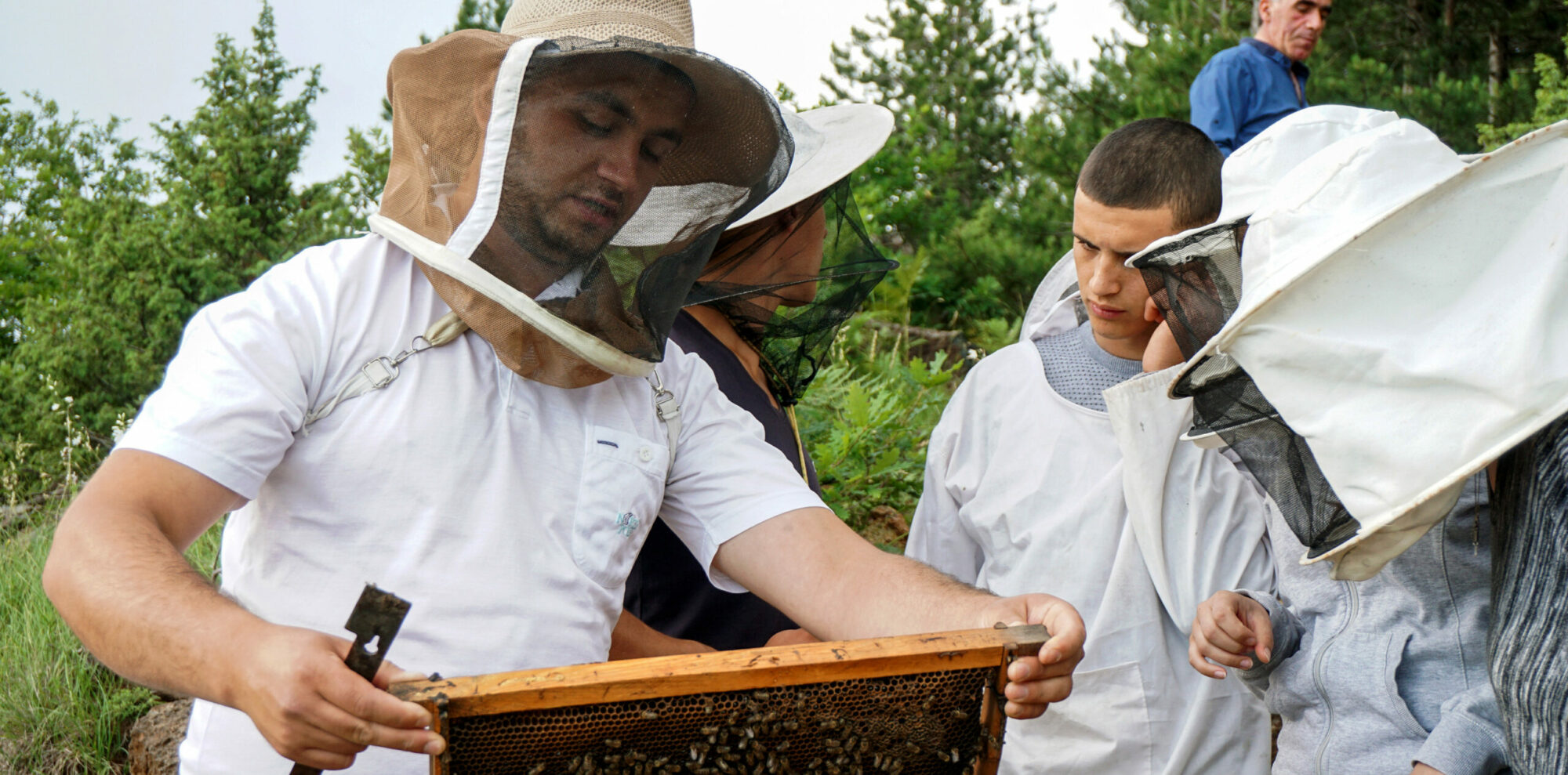“If we can protect the bees we can protect the planet! That is why beekeeping has always been my passion. We work together with other young people as part of the Puka young beekeepers’ group to share knowledge and experiences. But these days, due to the pandemic, our working hours are limited and it is a struggle to move the beehives,” says 17 years old Alesia Malutaj, one of the 12 members of the group.
Due to the 10 pm to 6 am curfew in Albania, beekeepers cannot move the beehives to good pastures, as technically this is done during the night while the bees are inside the beehives.
Additionally, some municipalities such as Bajram Curri known for the vast plantations of chestnut trees, in order to reduce movement due to Covid-19, issued orders not to allow entry of bees from other municipalities on their territory.
Despite of the difficulties, this past year the young beekeepers from Puka have seen a slight raise in their honey production by 5%, while due to higher consumer demand their propolis production increased by over 50%, and the production of royal jelly by over 20%.
In the long run the group has shown excellent results.
“Four years ago, I started with 5 beehives from which I produced 40 kilograms of honey. Now I have 40 beehives and I produce over 400 kilograms of honey,” says Klodian Cara, the founder of the group.
This freshly graduated veterinarian says that during this difficult time of pandemic, the beekeeping has helped him provide a solid income to support his family.
This is why beekeeping is also important for Drivalda Zmakaj. “With the income I get from the beekeeping I can cover part of my tuition fees at the university”.
The young beekeepers from Puka are serious about their business. The high quality of their products is certainly due to the natural predispositions of this eco region, but also it’s also a result of the proper practices learned during trainings.
With the support of We Effect, they participated in trainings for beekeeping, farm management and marketing of bee products provided by our partner organisation AgroPuka. They were supported in introducing packaging in jars instead of packaging in plastic bottles, introducing and procurement of cardboard boxes for transport, labelling of the honey with the logo of the young beekeepers’ group and participation in national and international meetings and honey competitions.
The five golden and one silver medal received in the last three years at various Balkan competitions are a solid proof of the undisputable quality of their honey.
But there are still many challenges ahead. Fully meeting market standards will be necessary to completely tap into local and regional markets. And while these far-reaching benefits may not yet be quite visible to them, they are very happy with what they have achieved so far.
Certainly one of the greatest achievements of this group is that it has fostered a desire among the young people in Puka to turn beekeeping into a business that will generate income for them and their family, potentially reducing the high migration rate among the youth in their villages.
